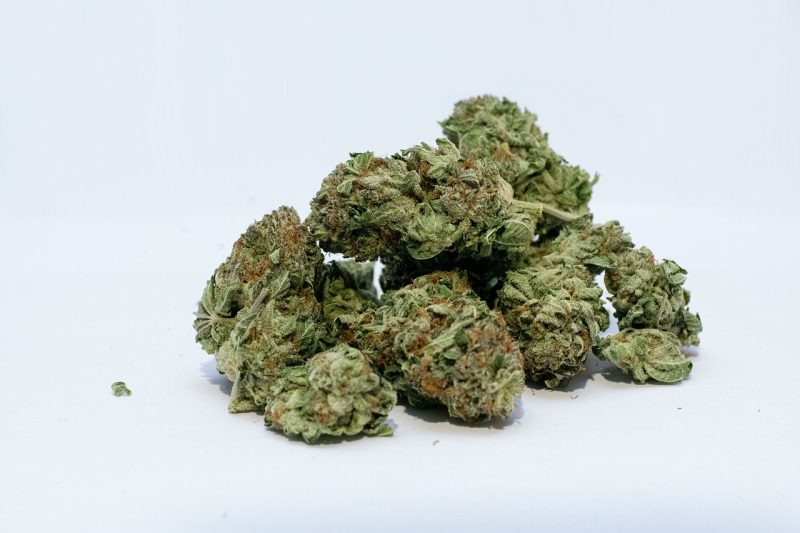As more states legalize both medical and recreational marijuana, products containing extracts from the plant are appearing on shelves around the country too. Cannabidiol, commonly abbreviated as CBD, is one such compound that’s now available in various formulations at smoke shops, health food stores and dispensaries.
Though CBD is extracted from cannabis, unlike another cannabinoid, THC, it does not have psychoactive properties. So why is this compound that doesn’t provide a high suddenly so trendy? It’s all about the number of therapeutic effects associated with the substance. The evidence is somewhat mixed, but researchers have explored and are continuing to investigate some of the claims tied to the compound.
One application of cannabidiol is in the treatment of epilepsy. A 2018 study published in Epilepsy & Behavior looked at a group of 108 youth epilepsy patients who used CBD oil. The study finds that 39 percent of the children had over a 50 percent reduction in seizures. Ten percent of these patients became seizure-free. Though none of the patients were able to wean off other antiepileptic drugs entirely, 22 percent reduced their use of these drugs. The researchers write that the findings indicate CBD is an effective tool in seizure reduction and has few significant side effects.
Another study, published in the Journal of Epilepsy Research in 2017, summarizes three recent placebo-controlled trials for patients with seizures who received a purified CBD product alongside another antiepileptic drug. These studies found that CBD performed better than the placebo with respect to reducing seizure frequency. However, the author writes that the mechanism of action for CBD is unclear; it might work with other drugs to amplify their effects, rather than directly reduce seizures on its own.
A 2014 review of cannabidiol’s potential therapeutic role in epilepsy and other neuropsychiatric disorders similarly presents reports of the efficacy of the compound for these conditions, though it points out that mechanisms of action are not known and data from double-blind, randomized, controlled studies is lacking.
More rigorous studies are coming out — a double-blind, randomized, controlled clinical trial examining the role of cannabidiol as an additional therapy to treat schizophrenia published March 2018 finds that the experimental group had lower levels of psychotic symptoms than the placebo group. The experimental group also were more likely to be rated as improved and “not severely unwell,” by their doctors. Additional studies support the finding that CBD might possess antipsychotic effects, though a review published in JAMA in 2015 indicates that two studies evaluating CBD in treatment of psychosis found no difference between the experimental and control groups.
Some think the compound might have anti-anxiety effects. Scholars at the University of Sao Paolo summarize a number of human and animal studies, conclude that the compound “promotes antianxiety effects in humans,” and propose a few potential pharmacological mechanisms through which it might work. Individual studies examine the effects of the substance in patients with social anxiety disorder, fear of public speaking and paranoia, generally finding beneficial effects, though the studies all have relatively small sample sizes.
A new paper released ahead of print in Neuropsychopharmacology indicates another potential use for CBD: treating drug addiction. The study, conducted in rats, looked at the “anti-relapse” potential of CBD. The rats, who had histories of consuming alcohol or cocaine, received CBD for a week. Researchers find that “CBD attenuated context- and stress-induced drug seeking without tolerance, sedative effects, or interference with normal motivated behavior.” While this study occurred in an animal model, a small study in humans finds that CBD treatment reduced the number of cigarettes smoked by people who wanted to quit as compared with those who received a placebo. A review of research examining CBD as a treatment for addiction highlights a handful of studies that looked at effects on humans and animals; the findings were mixed. For example, studies of CBD use and cannabis addiction are quite preliminary.
CBD also has anti-inflammatory properties, and is used by some to treat pain, both topically and internally. Most studies of cannabidiol and pain management, however, look at the use of CBD in concert with other cannabinoids, such as THC.
Despite the growing popularity and availability of cannabidiol, the compound remains illegal in the eyes of the federal government. Cannabis extracts, including CBD, are classified by the Drug Enforcement Agency as a Schedule I substance. This is the most restricted category of controlled substances, which the agency defines as “drugs with no currently accepted medical use and a high potential for abuse.” However, some states, like Indiana, have passed laws legalizing the substance, indicating that despite mixed evidence as to the compound’s effects and federal guidelines that legislate against it, CBD is here to stay.


Expert Commentary